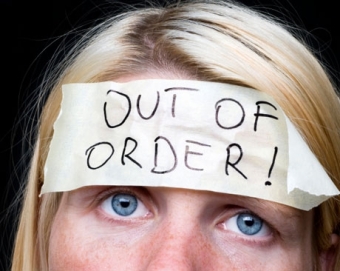It’s 1:45pm on an ordinary Wednesday in August. A time when children returning home from summer day camps are cooling down with orange or berry flavored popsicles. A time when the sun is lazily strolling through a clear blue sky, too warm and weary to move any faster.
It’s a carefree time for most. But not for my brother.
Papa is sitting on the sofa slightly slumped over, his eighty-one-year-old spine yielding like an old, soft coat hanger to the weight of end-stage congestive heart failure, kidney disease and Parkinson’s. His signature salt and pepper beret hangs low over his forehead, covering his eyes.
After a few friends and relatives leave, my brother assumes he is just resting.
Until he moves closer to tap Papa on the shoulder, and Papa completely keels over like a marionette no longer guided by higher hands.
****
On Monday, two days before Papa dies, I receive a phone call from him.
“I miss you.”
His voice is magnetic, drawing me out of the embodied, grounded place I’m trying to reach. I hold the memories of this man’s significance in my life at bay; they are visitors I am not ready to confront. Right now, I’m at the gynecologist’s office waiting in an exam room to discuss treatment options for perimenopause. The appointment was rescheduled after I missed the last one visiting him in the hospital.
“I miss you too, Papa.” The response manages to push its way past the conglomerate rock of emotions stuck in my throat.
Seconds later, Dr. M rushes in like a whirlwind, eyes me on the phone, and backs out of the exam room. Clearly my phone call is more important than her services. I’m not sure I agree.
“Papa, I need to go. I’m at the gynecologist’s office. Call you later.”
Tenderness for my own wellbeing, my own healing process pulls me away from the call. Perimenopause is changing my inner landscape so much, that I feel like a foreigner inhabiting a strange body. But the force of guilt is equally strong. My nervous system is flooded with intense feelings, sacroiliac joints burning from prolonged sitting with Papa at the hospital for several hours and at my brother’s place now that he is home on Hospice.
Papa is still dying. After several hospitalizations for congestive heart failure, his heart is more susceptible to fatal arrythmias that can only be managed in an acute setting. As much as Papa wishes to prolong his life, quality of life outside of a hospital with loved ones is most important to him.
My thoughts are interrupted by a soft knock on the door. Dr. M reenters the exam room. I guess I’ve decided to stay. It seems like a logical decision, and my heart yearns for more guidance.
As I’m driving home from the appointment, I try to call Papa back. My sister-in-law answers. “He’s sleeping.”
“I’ll try to call him later.”
*****
I work on Tuesday and Wednesday to see a backlog of patients trying to catch up on two years of delayed medical care since the onset of COVID. They’re still afraid of the virus and all its variants, but cancer, complex pain, and confounding mental illnesses are strong competitors. My heart feels even more fragmented trying to meet everyone’s demands. Am I caring for anyone successfully?
The opportunity to call Papa later never comes. I am not there. I don’t get to say goodbye.
“Well, whose fault is that?”, my inner critic chastises. “You’re SO selfish, always putting your needs before others, even the man who raised you like his own daughter. You left your cousin brother alone to face his death. How could you?”
Another voice tiptoes into the conversation. This one feels like it’s coming from an older, wiser place. It might even be ancestral. “Dear One, it’s true you were not physically there in his last moments. You were consciously caring for so many depleted beings. Can you remember the times you were present to care for Papa in meaningful ways?”
I don’t see Papa again until my brother, sister-in-law, and I dress him in traditional white clothing at the funeral home for the final viewing before cremation. His skin is oddly smooth from the effects of funeral makeup, but it can’t hide the slight tension in his jaw, as if he is still objecting to this unsolicited outcome.
Memories that were once conveniently sequestered can no longer be held back. A shy eighteen-month-old girl arriving with her mother from India after her parents separated, trusting a strange man (her maternal uncle) at the airport to embrace her as one of his very own. Frequent trips to Yosemite and other national parks, weekend trips to Golden Gate Park and Ocean Breach in San Francisco where Papa instilled a deep reverence for the natural world and Gandhi’s principle of compassionate action in me. The time when he drove down from San Francisco to Los Angeles in my gap year between college and medical school, because I had contracted tonsillitis with a nasty secondary allergic reaction to the antibiotic, and I had begged him to come.
Flooded with guilt and grief, I question him silently. “Papa, am I worthy of this rite?”
His demeanor conveys neither judgment nor approval.
*****
The choices we make can restore or haunt us. Sometimes it’s not so black and white. I still see Papa’s face, hear his voice in the pleas of my dying patients.
“Help me!”.
Sometimes I recoil in fear and overwhelm, forgetting how to access the spirit of healing that extends beyond each exam room.
Sometimes I stay with compassionate courage and fierce tenderness, softening the boundaries between who is doctor and patient, who is parent and child.
Most days I’m learning to navigate the shifting landscape of change and loss without a clear road map, assuaging guilt with self-forgiveness, and caring for myself and others in significant ways.
Mindfulness teacher and author Jack Kornfield said, “If your compassion does not include yourself, it is incomplete.” As Papa once told me, even Gandhi needed a day of rest and silence.



 RSS Feed
RSS Feed